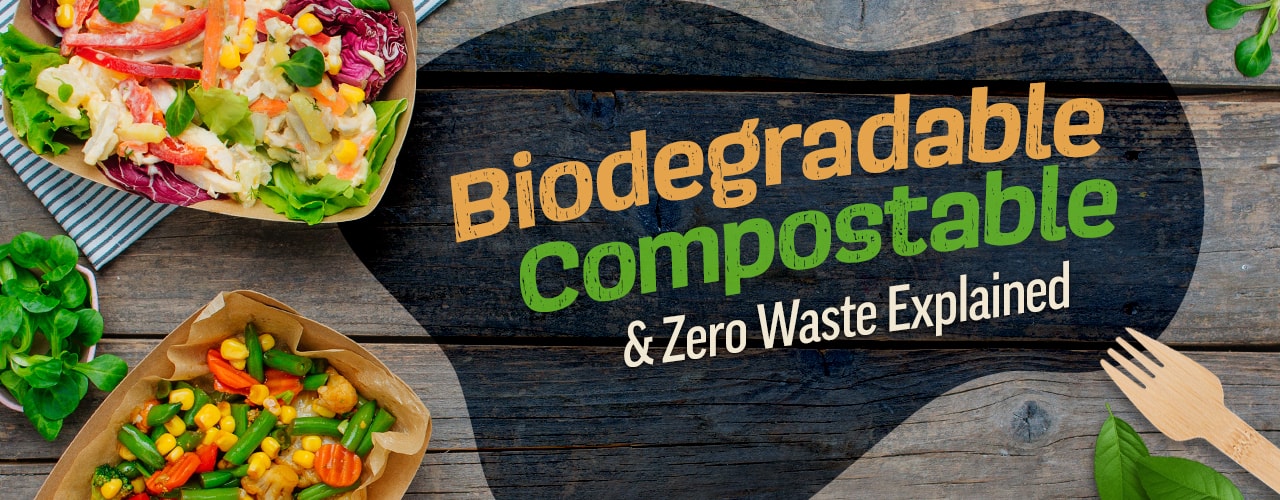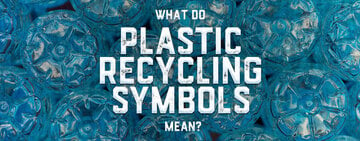Biodegradable, Compostable, & Zero Waste Explained
Last updated on Jan 14, 2026Richard TraylorOne of the fastest-growing foodservice trends is switching from traditional disposables and foodservice products to eco-friendly options. When searching for eco-friendly products for your restaurant, you may come across the terms "biodegradable", "degradable", and "compostable". We explain the differences between biodegradable, degradable, and compostable products, and how your restaurant can go zero waste with eco-friendly disposables.
Biodegradable, Compostable, and Degradable: What's the Difference?
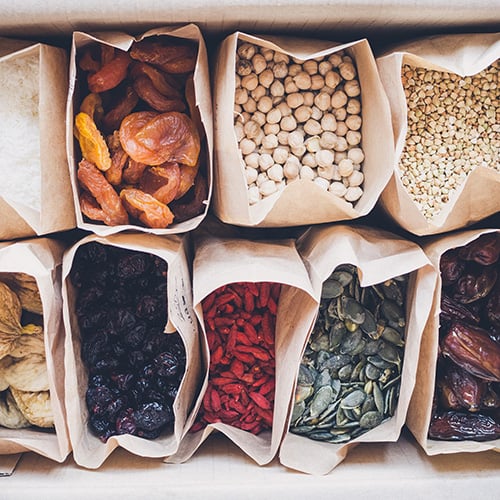
Biodegradable, compostable, and degradable products are made from different materials and deteriorate under distinct circumstances. We break down what each material is to help you make an informed decision when buying green disposable dinnerware for your business.
What Does Biodegradable Mean?
Biodegradable refers to a product breaking down into natural elements, carbon dioxide, and water vapor by organisms like bacteria and fungi. Technically, just about everything is biodegradable, although it will take hundreds of thousands of years for most things to biodegrade.
To earn a biodegradable label, products and materials must quickly decompose into natural materials. Third-party certifiers typically restrict acceptable breakdown times between six and nine months.
Why Biodegradable Products Shouldn't Go to Landfills
While biodegradable products are an eco-friendly option for restaurants, there are some downsides as well. When biodegradable products are dumped into landfills, which happens when they're thrown into the trash, they often get buried. Beneficial bacteria cannot survive buried underneath trash because there is very little oxygen.
As a result, the biodegradable products break down anaerobically, meaning without oxygen, which creates methane, a greenhouse gas that is bad for the environment. Some landfills collect the methane produced in their landfills and use it to create electricity, but most do not.
How to Dispose of Biodegradable Products
Because biodegradable products in landfills can create harmful methane, it is better to dispose of them in a commercial compost heap or to send them to a recycling plant. You can also check if there is a biogas plant in your area, which uses biodegradable products to create methane which they then use to generate electricity.
What Is Compostable?
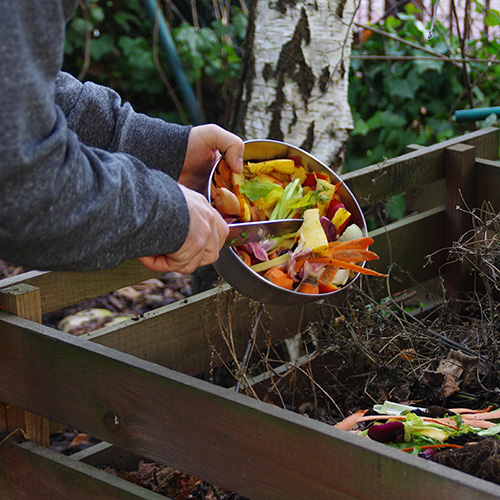
Compostable means that a product will break down into natural elements, but only in a compost setting. Compostable materials are typically made from plants and other organic materials, such as cornstarch, bagasse, or PLA plastic. Compostable products have two added benefits over biodegradable options: they break down much faster, many in roughly 90 days, and they also break down into nutrient-rich products, which generate healthy soil for the planet.
How to Dispose of Compostable Products
For compostable products to break down correctly, they need to be thrown away in a compost heap. Compost heaps are rich in microorganisms and reach high temperatures, which allow products to break down quickly. These types of products do not break down easily in traditional landfills, so compostable products should not be thrown in the trash. While many compostable products mimic the look of plastic, they should not be recycled.
Why You Shouldn't Recycle Compostable Products
Compostable products are not recyclable, and if a compostable item enters your restaurant's recycling process, it will contaminate and ruin the rest of your batch. If you're using compostable products at your fast food establishment or food truck, you should alert your customers so they can dispose of the products properly.
What Does Degradable Mean?
Degradable products are mostly oil-based and they break down through chemical reactions rather than organically by microorganisms. Unlike biodegradable products, degradable plastic items can break down in anaerobic environments like landfills.
However, degradable products do not break down completely and turn into organic material. Instead, they break apart into microscopic pieces which can still affect the environment. For example, some plastic can degrade and turn into small pieces, which animals ingest, causing major issues in the food chain. It typically takes much longer for products to degrade than it does to take biodegradable or compostable items to break down.
What Is Oxo-Degradable Plastic?
Oxo-degradable plastic is composed of petroleum-based polymers and additives such as metal salts that expedite their degrading process. In airy, hot, and bright environments, oxo-degradable products break down into small, microplastic pieces in a short amount of time. However, oxo-degradable products are not biodegradable or compostable, and they will not break down to the molecular level.
Oxo-Degradable vs Oxo-Biodegradable
Oxo-degradable and oxo-biodegradable products are extremely similar, but some oxo-biodegradable products have the potential to break down into natural substances in composting environments and oxo-degradable products do not. We've clearly outlined the similarities and differences between oxo-degradable and oxo-biodegradable products below.
Oxo-Degradable and Oxo-Biodegradable Similarities:
- Both have metal additives that allow them to break down into microplastic pieces without the aid of microorganisms.
- Both require microorganisms to degrade the microplastic pieces they break down into.
- Both require UV light and oxygen to disintegrate and won’t break down in landfills where trash items pile up.
Oxo-Degradable and Oxo-Biodegradable Differences:
What Is Zero Waste?
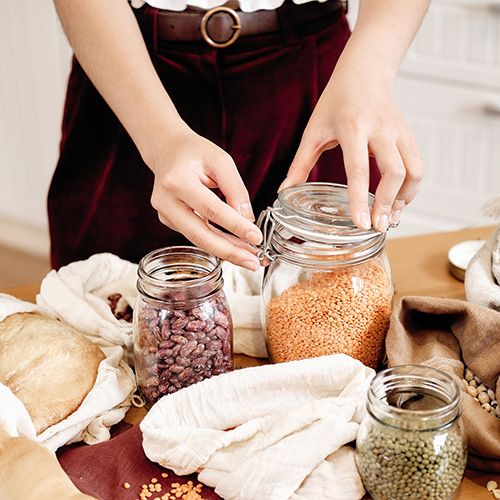
Zero waste is a philosophy that aims to follow sustainable natural cycles where all discarded materials are used for other purposes, resulting in no trash going to landfills or incinerators. The goal of zero waste is not to send products to recycling plants and compost heaps instead of landfills but to use all the products and eliminate waste entirely. While many people across the country choose a zero-waste lifestyle at home, you can also implement some tactics in your restaurant to create a zero-waste kitchen.
How to Go Zero Waste
The first step in creating a zero-waste kitchen is determining how much food you're currently wasting and how much trash you're producing. From there, you can decide where to make adjustments to limit food waste. One of the best ways to calculate how much food you're wasting is to conduct a food waste audit.
To conduct a food waste audit, have your employees track the amount of food that is coming into your restaurant and then how much is being thrown away. This can help you understand if you need to scale back your shipments, change how you're storing produce, or adjust your menu. Another major source of waste in kitchens is disposables like plastic cups, disposable plates, straws, napkins, and packaging.
Zero Waste Tips
If you're interested in turning your restaurant into a zero-waste kitchen, here are some helpful tips to reduce waste and re-purpose products.
- Find unique ways to use food scraps in your kitchen, such as using vegetable scraps and skins to make vegetable broth.
- Donate excess food to local food banks and food scraps to farms to use as animal feed.
- Use leftover meat and vegetables in soups and stews.
- Swap out your disposable plates and bowls for melamine or china options.
- Replace your paper napkins with reusable cloth versions.
- Eliminate plastic straws.
- Choose eco-friendly cleaning supplies and chemicals.
- Take any remaining waste to commercial compost heaps rather than throwing them away.
While there are many similarities between biodegradable, compostable, and degradable items in terms of construction and look, they are vastly different and have very different impacts on the environment. If you're looking for disposables that can help you with transitioning your kitchen to zero waste, compostable items are a perfect choice because they're sustainable, they turn into safe organic material, and they break down quickly.
